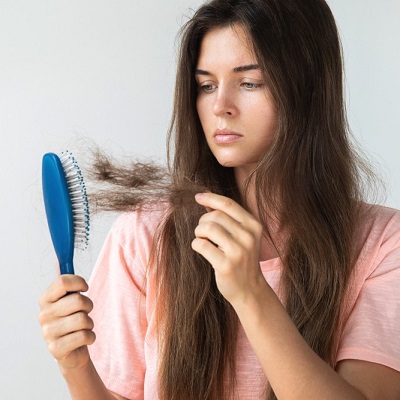
When you run your fingers through your hair, have you ever noticed that there are more strands than usual tangled around your fingertips? A slight shift is reflected in the mirror; you see a little more scalp than you recall. A silent question lingers in the air: “Is this normal, or am I about to embark on a hair loss battle?” Come along with us as we investigate the causes of thinning hair and practical solutions for hair loss. Learn More about ways to address hair loss and when to consult a Surgeon.
Hair Loss!
Alopecia, which is the scientific term for hair loss, is a common and natural process in which a person’s hair density and thickness decrease. If it is more than just a few strands falling out; there is a discernible reduction in the total amount of hair on the scalp. Both men and women can experience it, which can take many different forms, from progressive thinning to more noticeable bald patches.
Several other factors might contribute, including lifestyle decisions, underlying medical issues, hormone fluctuations, and genetics. Determining the best strategy for addressing hair loss requires an understanding of the underlying reason.
Ideal Candidates:
People who are experiencing mild to moderate thinning hair, in particular, are generally suitable candidates. Early on, it’s usually simpler to encourage regrowth and stop additional hair loss.
Candidates who are in good general health are preferred, as underlying medical conditions may exacerbate hair loss. Hair health can be positively impacted by leading a healthy lifestyle that includes regular exercise and a balanced diet.
Ways to address hair loss:
Combining medication, lifestyle modifications, and even surgical procedures can be used to address hair loss. Here are a few strategies for dealing with hair loss:
Topical Drugs:
One popular over-the-counter topical drug that can encourage hair growth is minoxidil. It is administered directly to the scalp and comes in liquid or foam form.
Prescription Drugs:
Finasteride is useful in treating male pattern baldness. It functions by preventing the action of dihydrotestosterone (DHT), a hormone that is linked to it.
Laser Treatment:
Low-Level Laser Therapy (LLLT): Low-level lasers are used by devices like laser combs and helmets to stimulate hair follicles and encourage hair growth. You can utilize this non-invasive treatment in a clinical environment or at home.
Hair Transplant In Islamabad:
During this procedure, hairs are extracted from a donor site of the scalp and transplanted back into the bald region after preparing them, offering effective and long-lasting outcomes.
When to consult a surgeon!
When non-surgical treatments for hair loss, such as topical drugs, lifestyle modifications, or medications, have not been able to control the degree of hair loss, consulting a surgeon is recommended. A consultation with a surgeon may be beneficial for individuals exhibiting severe stages of hair loss, which are typified by noticeable balding or thinning of the hair.
Additionally, a surgical method, such as hair transplant surgery, may be a good choice for people looking for a more long-term solution or dealing with particular patterns of hair loss, such as male or female pattern baldness. If one wants results that are both natural-looking and long-lasting, then consulting with a surgeon is imperative.
Book us now!
When you’re ready to take the next step, we kindly encourage you to schedule a consultation with our experienced and dedicated staff. If you would like more information about Ways to address hair loss and when to consult a Surgeon. Please contact us at the dynamic clinic PK.












